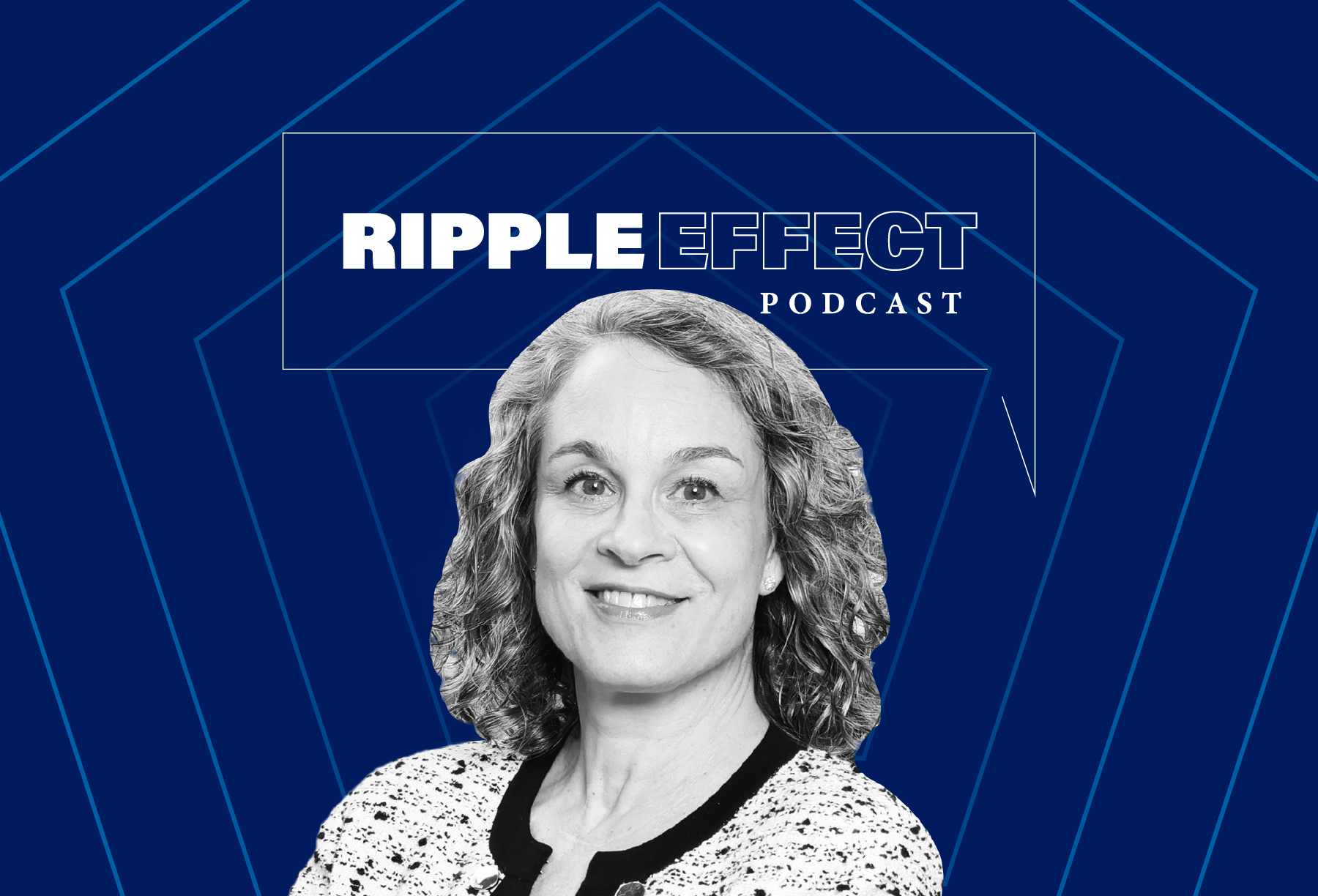Building AI Capabilities Into Portfolio Companies at Apollo
Carolyn Geason-Beissel/MIT SMR | Getty Images Companies across a wide range of industries are increasingly focused on using artificial intelligence to gain a competitive edge and unlock productivity gains. Given the transformational potential of the technology, it’s not surprising that private equity investors are also seeking to harness the power of AI in their portfolios. […]

Carolyn Geason-Beissel/MIT SMR | Getty Images

Companies across a wide range of industries are increasingly focused on using artificial intelligence to gain a competitive edge and unlock productivity gains. Given the transformational potential of the technology, it’s not surprising that private equity investors are also seeking to harness the power of AI in their portfolios.
Apollo Global Management is one firm that is aggressively attempting to build AI capabilities in its portfolio companies. It has a variety of asset management and lending businesses, but a prominent focus is private equity. That business involves buying, building, and selling companies, capturing value for its investors each step of the way. While many companies have struggled to create economic value with AI, Apollo is applying disciplined investing and capability-building strategies to make its funds’ portfolio companies more competitive and more valuable.
This bodes well for continued investment in AI business applications; if private equity firms are prioritizing AI, it suggests that the technology has immediate and tangible value-creation potential. And the approaches and frameworks that have worked for Apollo with AI may also be relevant to many other companies looking to apply proven use cases within their businesses.
A Value Creation Playbook
Apollo significantly boosted its focus on digital transformation, analytics, and AI in its portfolio companies about five years ago, when it built up its portfolio operations team. David Sambur, a partner and co-head of equity at the firm, felt strongly that a greater emphasis on generating value through digital capabilities in portfolio companies was necessary. In mid-2021, the company hired Vikram Mahidhar as an operating partner. He’s now head of Apollo’s Data, Digital, and AI team. Mahidhar had previously headed the AI practice at Genpact, was part of the management team at a successful AI startup that Genpact acquired, and had done early work in AI as a Deloitte managing director.
As one of his first tasks at Apollo, Mahidhar identified a set of “value pools” — areas and capabilities that could employ digital technologies to improve performance and increase value in portfolio companies. They included product engineering, cloud transformation, sales and marketing, finance, AI, operations, and customer care transformation. AI quickly became the most critical of these, since it serves as an enabler for most of the other value pools.
Apollo has since developed a detailed process for both evaluating AI risks and opportunities and building AI capabilities for a specific company. It begins well before an actual investment, with an assessment of how AI is affecting not just the target company but its entire industry, and what the potential impact could be over the coming years, given the pace of AI adoption. This assessment then guides the firm toward the best ways to use AI, leaving out those uses that pose high risk.
The next step is to conduct detailed diligence — often with the help of external consultants — on how AI is impacting the products and projects within the specific company. That process leads to identifying and developing specific use cases and creating a plan for implementing them once the business has been acquired.
Of course, running this playbook requires buy-in from the most senior levels of both Apollo and the company where these AI projects will take place. This includes a commitment to investing in not just the tools but the talent needed to drive AI transformation. Apollo’s leadership is clearly convinced of the technology’s potential benefits, and portfolio companies appear to be fully engaged as well.
An Incubator of AI Startups
The goal is to make portfolio companies as self-sufficient as possible, but Mahidhar’s group can supply recommended AI tools, vendors, potential senior hires, and consultants, if necessary. (As the AI mandate has expanded, Mahidhar has brought on Katia Walsh, previously chief digital and AI officer at multiple companies, to spark AI development and oversee plan execution of AI initiatives in portfolio companies.)
Because Apollo believed that its portfolio companies would benefit from leading-edge AI capabilities, its infrastructure funds group — the Apollo Funds — partnered with venture capital firm 25madison to launch the incubator 25m Evolve in 2024. The goal of the partnership is to nurture potentially disruptive startups in the B2B AI space that will become suppliers to Apollo Funds’ portfolio and viable software businesses for other customers.
The incubator now has 11 companies that address a broad range of AI capabilities, from supply chain resiliency and manufacturing response time to reputation management. It’s too early to know the full extent of these applications, but Mahidhar is optimistic that they will yield an array of repeatable use cases.
Portfolio Case Studies
Several of Apollo Funds’ portfolio companies have taken specific AI applications from pilot to production to scale. The educational publisher Cengage, for example — where Mahidhar serves on the board of directors — is currently executing eight AI projects to improve productivity in areas like sales enablement, customer care, content production, sales automation, and new product development. Early results are strong: Costs are down 40% in select content production processes, 15% to 20% in lead generation via automation, 15% in customer care, and 10% to 15% in software development. Cengage has also launched two new AI products: Infosec Skills Navigator, which creates personalized cybersecurity training plans, and Student Assistant, a generative AI-enabled tutor bot that has scaled to 1 million student users.
At Yahoo, another Apollo Funds investment, AI is already delivering tangible, organizationwide impact. The engineering team’s productivity improvements exceed 20% and are trending higher, with developers accepting over 10,000 lines of AI-generated code daily. Beyond engineering, enterprisewide AI copilots are driving measurable productivity gains in sales, finance, and HR. These tools alone are saving an estimated one hour per user per week, unlocking significant human capacity to focus on customer priorities.
Barnes Group, acquired by Apollo Funds in January 2025, makes moldings and components for the aerospace and industrial sectors, where after-sales support is an important part of the business. Barnes had a trove of technical information about its products and how service technicians should support customers, but it was housed in written documents that were difficult to access. Using a generative AI solution, Barnes identified, de-duplicated, and indexed all of its product spec documents — not just for after-sales purposes but for all of its operations. As a result, service technicians can access immediate, accurate information about specific equipment. Service technicians no longer need to wait to get information from headquarters — a change that has yielded a five-times return on the AI investment in its first year.
At Univar Solutions, a chemical and ingredient distributor and provider of value-add services acquired in 2023, the ChemCentral e-commerce offering has attracted hundreds of thousands of customers who purchase sporadically from the company. To drive growth, Univar deployed an AI-driven sales agent to strategically reengage dormant customer accounts by analyzing historical purchasing behavior and delivering personalized outreach. In the initial pilot, the AI agent achieved a 30% engagement rate — demonstrating strong potential for scalable revenue growth and enhanced customer reactivation.
Apollo has also taken a scaled platform approach to releasing working capital and optimizing its spending across portfolio companies. It uses its own AI system to look across purchasing contracts and invoices for over 40 companies in the portfolio and determine the best price paid for a particular product. For instance, software is one major category of spending across companies. In one case, Apollo’s AI system analyzed 15,000 software purchase agreements in a matter of minutes, which helped one company in its portfolio realize a tangible procurement cost reduction of more than 65%. This AI system is allowing Apollo to establish its own proprietary benchmark that it can use during the diligence process for future investments.
These real-world use cases may not be the most exotic examples that come to mind when we imagine an AI-enabled future. However, they demonstrate clearly that AI value creation is real. AI is no longer experimental. Instead, it’s a foundational layer reshaping how private equity investors think about value creation and how companies build, operate, and execute to better serve their customers and drive sustainable growth.
































































![https //g.co/recover for help [1-866-719-1006]](https://newsquo.com/uploads/images/202506/image_430x256_684949454da3e.jpg)





































































